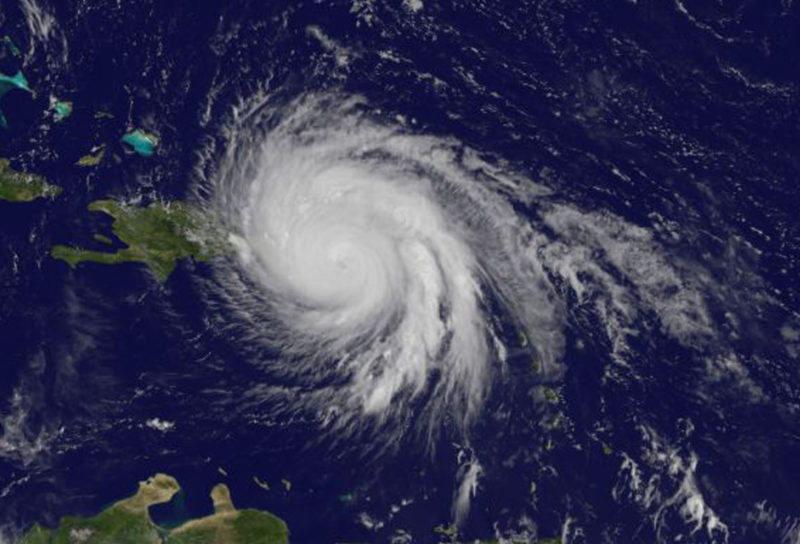The sudden eruption of anti-Jones Act rhetoric after Hurricane Maria devastated Puerto Rico took the maritime industry by surprise. But a pivot in news media coverage and the law’s strong support in Congress quickly deflated the political challenge, said a top industry executive.
“We were already there as Maria cleared out … we knew (the extent of damage) but the country didn’t know,” recalled John Parrott, former president of Tote Maritime Alaska, referring to Tote’s Puerto Rico cargo operations. Parrott spoke Friday to the King County 2017 Maritime Economic Forecast breakfast at the Pacific Marine Expo in Seattle.
After 30 hours of battering and with power and communications knocked out, the island was a black hole for media coverage until more news crews arrived, said Parrott, now president of Foss Maritime, Seattle.
But soon the vacuum was partially filled by longtime Jones Act critics, who have sought changes to the law they say drives up costs for households and businesses on the island by requiring cargo from U.S. ports to Puerto Rico be moved on U.S.-built and crewed vessels.
“It somewhat took us by surprise,” said Parrott, flashing a graphic slide that showed a sharp spike in news stories mentioning the Jones Act after Hurricane Maria made landfall Sept. 20.
A surge of news stories and editorials in the following days quoted longtime anti-Jones Act talking points, along with spurious claims that all cargo to Puerto Rico must pass through Florida ports. Another one was that all the island’s fuel comes from the U.S. mainland, when in fact most petroleum products sold on the island before the storm arrived in foreign-flag tankers, said Parrott.
In emergencies the Jones Act can be suspended to speed relief into hurricane areas, and the Trump administration did so after hurricanes Harvey and Irma when it appeared fuel delivery would be severely disrupted. After Maria, administration officials initially decided there was enough U.S.-flag capacity available immediately.
But a chorus arose demanding a suspension of the Jones Act cabotage rules for Puerto Rico, from Gov. Ricardo Rossello to Sen. John McCain, R-Ariz., and members of Congress representing urban districts with cultural ties to the island.
It was a coalition of voices that had long sought an exemption for Puerto Rico. But in the wake of Hurricane Maria their cause got a boost from political critics of the Trump administration, who saw the Jones Act debate as more evidence the hurricane recovery was bungled.
McCain and Sen. Mike Lee, R-Utah, introduced legislation to waive Jones Act requirements for Puerto Rico shipping. No fewer than three versions of the bill were proposed within days of each other, said Parrott.
But by then, the drive was losing steam. Maritime companies and labor unions had put out another side of the story: how U.S. shipping was delivering thousands of containers, but the island’s crippled trucking industry could not deliver them.
Network news reports showed containers stacked at terminals in San Juan. The Teamsters airlifted volunteer drivers from the mainland to help move supplies out of the port. Jones Act supporters in Congress stepped forward, and urged colleagues to look at true conditions on the ground in Puerto Rico.
“The three (anti-Jones Act) bills had no more than 22 signatures on them,” and the legislative drive went nowhere, said Parrott. But it showed how quickly an unexpected storm could arise over the Jones Act, and the industry’s need for a nimble response to crisis, he added.
While the national news media has mostly pulled back from Puerto Rico, U.S. vessels are delivering supplies but overland logistics and recovery are a continuing challenge, and will be for a long time, said Parrott.
“We’re still there,” he said, and reminded the audience how long U.S. relief and sealift support was needed after the earthquake that struck Haiti in 2010. “We’ll be there a long time. The last of the U.S. to pull out of Haiti was two years ago.”




